Water and Environment Support (WES), a useful catalyst of common regional Action in the Mediterranean

WES project workplan for year 3 was endorsed by the Steering Committee
The WES Workplan for 2022 was unanimously adopted by the Steering Committee Meeting (14/12/2021), chaired by Mr Frédéric Fourtune, Programme Manager and the WES TL Professor Michael Scoullos, who stressed the fact that despite the COVID-19 pandemic, the majority of WES activities were launched and are ongoing.
More than 80 participants (Focal Points from the Partner Countries, European Commission, EU Delegations, UfM, UNEP/MAP, the WES Team, etc.) from 16 countries, discussed the WES activities carried out during 2021 and provided valuable updates and contributions for the smooth implementation of the 2022 Workplan.
Additional emphasis was given on the great opportunities the European Green Deal presents for the Neighbourhood countries.
Mr Stefano Dotto, Head of Sector Connectivity, Climate and Environment, of DG NEAR, and Mr Patrick Wegerdt of DG ENV briefed the participants on recent developments and EU Policies and stressed that WES is instrumental in promoting regional cooperation for addressing environmental problems, and in enhancing a common culture for a sustainable and circular economy in the Mediterranean countries.
WATER COMPONENT
Water Harvesting and Natural Water Retention Measures in the MENA Countries
An online WES Regional Training on Water Harvesting, on the was organised 7, 11, 14, 18 and 21 of October 2021. For a total of 15 hours, 35 participants from Ministries of Water, Irrigation Authorities, River Basin Authorities, Land Management, Geological Survey Agencies, Water Utilities, Municipalities and NGOs of 9 countries, were introduced to ‘water harvesting including through retention & aquifer recharge with storm water’. The Training demonstrated the importance of awareness and education at all levels for supportive, enabling policies and extension/technical support in developing different rain/flood water harvesting systems for crop production
Water Demand Management in MENA countries
On December 13, 2021, the EU funded WES Project launched a Peer-to-Peer (P2P) exchange process, focusing on Water Demand Management (WDM) which will be combined with a Regional Training (online) on the same subject in 2022. The proposed scope of the P2P Exchange on WDM and its various approaches/measures in the domestic, touristic, and industrial water demands were discussed with the peers water experts.
The P2P exchange will span over almost a year, till 12 November 2022 and will be mostly facilitated by virtual meetings and regular communication among the designated peers from relevant institutions in the PC.
ENVIRONMENT COMPONENT
Support for the promotion of Sustainable Consumption and Production and Circular Economy
As part of the national activity of the EU funded WES project in Algeria, the Regional Activity Centre of UNEP/MAP for Sustainable Consumption and Production (SCP/RAC) organised on November 18, 2021, the first of a series of trainings for training executives and university professors, on Green Entrepreneurship and Circular Economy.
This online training was organised with the support of the National Conservatory of Environmental Training (CNFE) and the University of Boumerdes and was hosted by the Algerian Centre of Circular Economy (CALEC).
A total of eight training sessions will be implemented over a period of two months. Their goal: to give more tools to university professors for developing their entrepreneurial and environmental approaches, and therefore to better support their students as future young green entrepreneurs.
Best practices in achieving waste reduction in the Mediterranean
WES has developed an on-line ‘repository’ of selected practices (https://bestpractices-waste-med.net/) that promote circular economy and waste reduction across the municipal waste management chain in the Mediterranean. The aim was to identify (through a stakeholder consultation), document, and disseminate key best practices to improve the implementation of the 3Rs (reduction, recycling and reuse) for municipal waste in eight countries of the southern Mediterranean: Algeria, Egypt, Israel, Jordan, Lebanon, Morocco, Palestine, and Tunisia.
The cases included are of varying scale and type and are available in English and French. This website contributes to the UfM’s 2030GreenerMed Agenda and also to the launching of a Flagship Initiative of UNEP/MAP’s Mediterranean Strategy for Sustainable Development (MSSD 2016-2025): Undertake regional assessments, as well as knowledge exchanges, of high- and low-tech solutions, that have been successfully implemented to achieve (solid) waste reduction.
HORIZONTAL/CROSS-CUTTING ACTIVITY
Gender and Youth
Upholding WES’ commitment to promoting gender equality and the empowerment of women and youth, the first WES Gender and Youth (G&Y) Committee Meeting was held on October 26, 2021. This meeting follows the development of a dedicated G&Y Action Plan and Road Map up to 2023 and relevant guidelines.
The meeting, chaired by the WES Team Leader, Prof. Michael Scoullos, brought together G&Y, Environment, Water, Stakeholder Engagement, Impact Assessment, Communication and Networking Experts who are tasked with assessing the overall progress of the WES G&Y Action Plan.
During the meeting, approaches and specific data collection methods were agreed on to ensure that the maximum potential gender and youth mainstreaming is achieved throughout the implementation of all WES activities.
